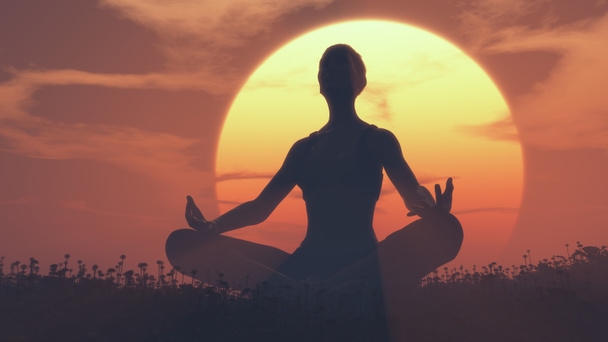Exploring Vipassana Jhana: Deep States of Meditation

Are you curious about deep states of meditation?
In this article, we will delve into the world of Vipassana Jhana and explore its profound effects.
Discover the origin and history of this ancient practice, understand the different levels of deep states, and learn techniques to attain them.
Uncover the benefits of deep meditation and how it can positively impact your daily life.
Get ready to embark on a transformative journey as we guide you through exploring Vipassana Jhana.
Key Takeaways
- Vipassana Jhana has its origins in ancient Buddhist teachings and has evolved over centuries within the Buddhist tradition.
- There are multiple levels of deep states in Vipassana Jhana, starting with a sense of calm and tranquility and progressing to profound stillness and equanimity.
- Techniques such as breath awareness, body scanning, and cultivating mindfulness can help attain deep states of meditation in Vipassana Jhana.
- The benefits of deep states of meditation in Vipassana Jhana include inner peace, clarity of mind, improved physical health, and the ability to navigate daily challenges with ease.
The Origin and History of Vipassana Jhana
The origin and history of Vipassana Jhana can be traced back to ancient Buddhist teachings. This deep state of meditation has evolved over centuries, with its roots in the Buddhist tradition.
Vipassana Jhana originated in India and spread to various parts of Asia, gaining cultural significance along the way. It was believed to be a means of attaining enlightenment and understanding the true nature of reality.
As the practice evolved, different schools of Buddhism developed their own interpretations and techniques for achieving Jhana. Today, Vipassana Jhana continues to be practiced by Buddhist monks and meditation practitioners worldwide.
Its cultural significance lies in its ability to promote mindfulness, self-awareness, and inner peace, offering individuals a path towards spiritual growth and liberation from suffering.
Understanding the Different Levels of Deep States in Vipassana Jhana
Understanding the different levels of deep states in vipassana jhana can be a transformative experience. By practicing different techniques, you can deepen your levels of concentration and explore the depths of your mind. Vipassana jhana is often described as a state of focused attention and heightened awareness. It is believed that there are multiple levels of deep states within this practice, each with its own unique characteristics and insights.
To better understand these levels, let’s take a look at the following table:
| Level of Deep State | Description | Insights |
|---|---|---|
| First Level | A sense of calm and tranquility | Awareness of the breath and bodily sensations |
| Second Level | Enhanced focus and clarity | Observing the impermanence of thoughts and emotions |
| Third Level | Profound stillness and equanimity | Realization of the interconnectedness of all things |
| Fourth Level | Deep absorption and oneness | Experiencing the nature of reality and the self |
| Fifth Level | Transcendence and liberation | Awakening to the true nature of existence |
As you progress through these levels, you will gain a deeper understanding of yourself and the world around you. Each level offers unique insights and can lead to profound personal growth. So, embrace the journey and explore the different levels of deep states in vipassana jhana.
Techniques and Practices to Attain Deep States of Meditation in Vipassana Jhana
Practicing various techniques can help you attain deep states of meditation in Vipassana Jhana.
One effective technique is breath awareness, where you focus your attention on the sensation of your breath entering and leaving your body. As you do this, notice the subtle movements and sensations that arise with each breath.
Another technique is body scanning, where you systematically bring your attention to different parts of your body, observing any sensations or tensions that arise. By cultivating mindfulness and non-judgmental awareness of these sensations, you can deepen your state of meditation.
Additionally, practicing loving-kindness meditation can help you develop a sense of compassion and kindness towards yourself and others, creating a positive and peaceful state of mind.
Exploring the Benefits and Effects of Deep States of Meditation in Vipassana Jhana
To fully experience the benefits and effects, you need to maintain consistency in your practice of attaining deep states of meditation in Vipassana Jhana.
When you commit to this practice, you will start to notice a profound transformation in your life. One of the key benefits of deep states of meditation is the ability to cultivate a sense of inner peace and calm.
As you delve deeper into your practice, you will find that your mind becomes clearer and more focused. This clarity of mind extends beyond your meditation sessions, allowing you to navigate daily challenges with greater ease and clarity.
Additionally, deep states of meditation can have a positive impact on your physical health, reducing stress and promoting relaxation.
Integrating Vipassana Jhana Into Daily Life: Tips and Strategies
When you integrate Vipassana Jhana into your daily life, you’ll discover practical tips and strategies to make it a seamless part of your routine.
Integrating mindfulness and cultivating presence are key to incorporating Vipassana Jhana into your daily activities.
Start by setting aside a specific time each day for meditation practice. It could be in the morning, before you start your day, or in the evening, as a way to unwind.
Find a quiet and comfortable space where you won’t be disturbed. As you sit down to meditate, bring your attention to the present moment, focusing on your breath or a specific object of meditation.
Throughout the day, try to bring awareness to your actions and thoughts, practicing mindfulness in everything you do.
Frequently Asked Questions
Can Vipassana Jhana Be Practiced by Anyone, Regardless of Their Religious or Spiritual Beliefs?
Yes, anyone can practice Vipassana Jhana, regardless of their religious or spiritual beliefs. It can benefit your mental health and promote personal growth, providing a deeper understanding of yourself and the world around you.
Are There Any Potential Negative Effects or Risks Associated With Attaining Deep States of Meditation in Vipassana Jhana?
Attaining deep states of meditation in Vipassana Jhana can have potential negative effects and risks. It’s important to be aware of these possibilities and approach the practice with caution and guidance.
How Long Does It Usually Take to Achieve Deep States of Meditation in Vipassana Jhana?
On average, it takes time to achieve deep states of meditation in Vipassana Jhana. Factors like experience, dedication, and consistency play a role in how long it may take you.
Are There Any Specific Dietary Restrictions or Practices That Should Be Followed to Enhance the Attainment of Deep States in Vipassana Jhana?
To enhance attainment of deep states in Vipassana Jhana, follow specific dietary restrictions and mindfulness practices. These practices can help you maintain focus and clarity, aiding in achieving deeper states of meditation.
Can Vipassana Jhana Be Used as a Tool for Managing Stress and Anxiety in Daily Life?
Yes, Vipassana Jhana can be a powerful tool for managing stress and anxiety in daily life. By practicing mindfulness techniques, you can cultivate a deep sense of awareness and learn to respond to stressors with more calmness and clarity.








